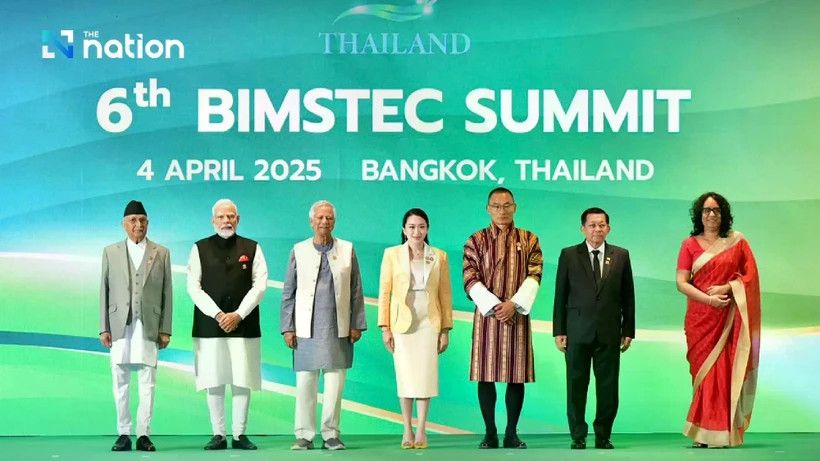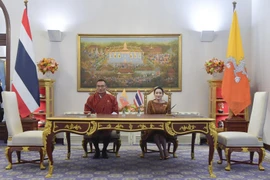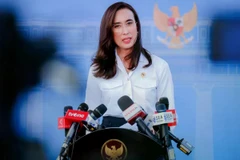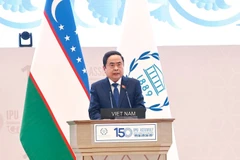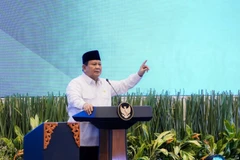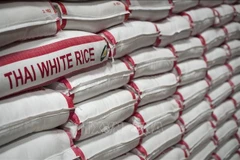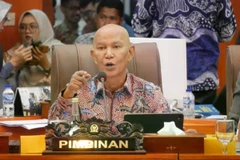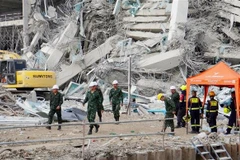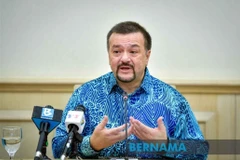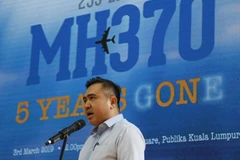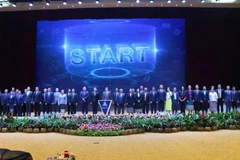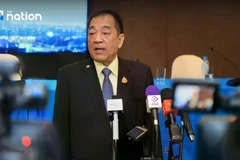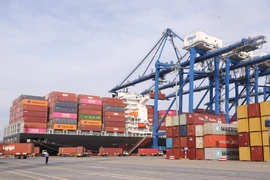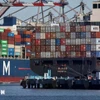Bangkok (VNA) - Thailand has proposed the creation of a BIMSTEC Free Trade Agreement (FTA) to enhance intra-regional trade, and strengthen the economies of countries in the regional group.
Thai Prime Minister Paetongtarn Shinawatra raised the initiative at the sixth summit of the group, officially known as the Bay of Bengal Initiative for Multi-Sectoral Technical and Economic Cooperation (BIMSTEC), on April 4 in Bangkok.
She believed that this FTA would unlock the economic potential of the region, creating new opportunities for all member nations.
Thailand also proposed establishing a BIMSTEC business advisory council to enhance the role of small and medium-sized enterprises (SMEs) in the region’s future growth.
The summit, hosted by the Thai government after a seven-year hiatus of in-person meetings, aimed to discuss a unified vision for the region’s future. The event saw the presence of leaders from seven countries, namely India, Nepal, Bhutan, Sri Lanka, Myanmar, Bangladesh and Thailand.
The leaders endorsed the “Vision Bangkok 2030” presented by the Thai PM, which seeks to improve economic connectivity, address climate change and prepare for regional challenges that affect over 1.8 billion people across the member states.
Paetongtarn stated that the document will serve as a blueprint for future cooperation among members of the bloc, which has a combined gross domestic product of 4.5 trillion USD.
The summit also focused on environmental sustainability and healthcare. The Thai PM called for the development of digital infrastructure and the use of advanced technologies such as Artificial intelligence (AI) to tackle climate change and pandemics. She proposed creating a “Centre of Excellence for Tropical Medicine” within BIMSTEC to address the region’s unique healthcare needs.
Additionally, Paetongtarn supported India’s proposal to establish a BIMSTEC disaster management centre to enhance the region’s disaster response capabilities.
In addition to economic and environmental discussions, the summit addressed pressing issues such as transnational crimes, including human tracking, the illicit drug trade and cybercrime. The leaders also emphasised the importance of youth engagement and gender equality for the long-term stability and cohesion of the region.
The group signed six agreements, including on maritime transport cooperation to boost connectivity between South and Southeast Asia and disaster prevention./.
